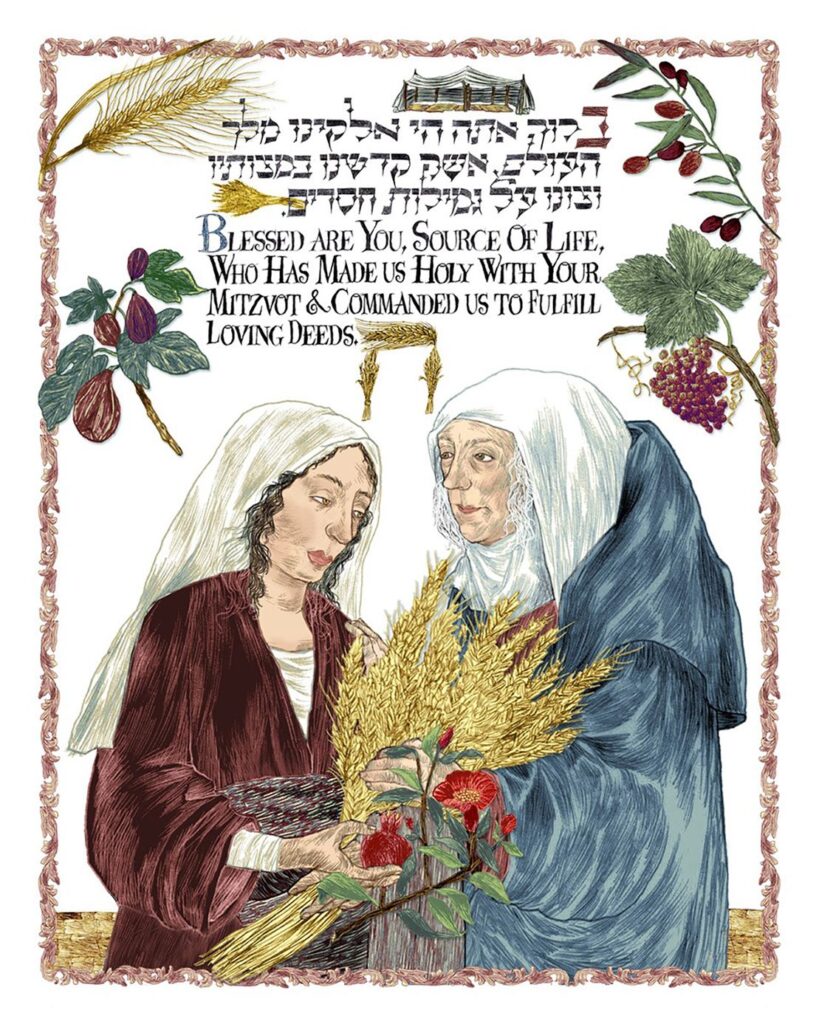Holidays
Shavuot
Remembering Those on the Periphery: A Shavuot Teaching

As we approach our second Shavuot amid the pandemic, we can see a stark connection between the societal effects of the coronavirus and the teachings of the holiday in which we celebrate both the wheat harvest in the Land of Israel and matan Torah, the giving of the Torah at Mount Sinai. While the pandemic has affected us all, it also has underscored the fact that the weak, the vulnerable and the stranger are especially exposed and under threat. Shavuot is a call to remember those most needy: the poor, the outsiders, those literally on the periphery of our communities.
That call for gemilut chesed, acts of lovingkindness, is the central pillar of the Book of Ruth, read on the Shavuot holiday, which begins this year the evening of May 16. Ruth, a Moabite, returns to the Land of Israel with her mother-in-law, Naomi, after they both lose their husbands and their wealth in the land where Naomi had sought respite from famine.
Ruth is willing to join with Naomi’s people and their God. Once in Israel, the two find shelter and sustenance, the tzedakah coming from Boaz and the people of Bethlehem who uphold the deepest values of welcoming the stranger and caring for the widow and the vulnerable. Boaz marries Ruth, whose descendant is the future King David, who is deemed to herald the Messiah.
The Book of Ruth is the story of the power of redemptive love and caring. The ultimate stranger, Ruth models compassion and reminds us that profound faith in family and God can restore one’s fortunes. She sets the path for a messianic future.
The positive reception given to Ruth stands in stark contrast to the lack of acceptance many Jews by choice face in Israel today. The country’s Supreme Court recently declared that the state must recognize the conversions performed under Israeli Reform and Conservative auspices and therefore grant these converts full status as Jewish citizens of Israel under the Law of Return.
Yet, while these individuals will now be recognized by the court and the Ministry of the Interior as full Jewish citizens, they are not considered Jewish by the state’s Orthodox-run Chief Rabbinate, which has a monopoly on matters of marriage, divorce and burial. These converts will not, for example, be allowed to marry other Jews under state procedures.
The actual number of people affected—mostly spouses of Israeli Jews—is relatively small; in addition to the 12 petitioners who originally brought the case to the Supreme Court, there were 35 more cases pending. According to the Reform movement’s Israel Religious Action Center, which represented the plaintiffs, some 30 converts a year will benefit. Still, although it took more than 15 years and 10 petitions, the court’s decision is a small but extremely important step toward embracing those who embrace us.
Unfortunately, but not surprisingly, the backlash from the rabbinate was swift, with the country’s chief rabbis stating that those who undergo Reform or Conservative conversions are not Jews and will not be accepted as converts. They called on lawmakers to work for a “quick” legislative fix that would negate the court’s ruling.
How sad, narrow and exclusionary are these denunciations of Reform and Conservative Jews and their rabbis. The Book of Ruth could not be more clear: We welcome the widow, the stranger, the orphan and, yes, the convert. Ruth declared her loyalty to our people and our God, and that was enough. Our Torah was given so we could all be a “kingdom of Priests and a holy nation” (Exodus 19:6), serving God through the expansive and caring ethics of the Ten Commandments, which form the basis of Jewish law and tradition.
That is our essence, let us live it as best we can.
Rabbi Naamah Kelman is the dean of Hebrew Union College-Jewish Institute of Religion in Jerusalem.









 Facebook
Facebook Instagram
Instagram Twitter
Twitter
Leave a Reply